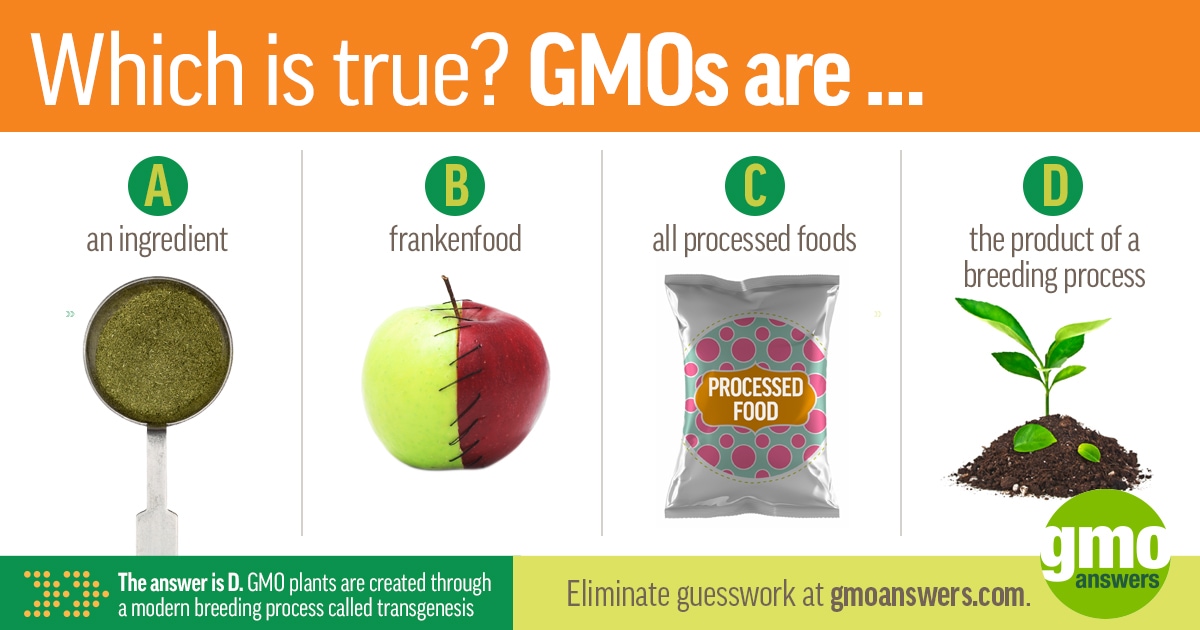Benefits of GMO Crops
GMO crops, also known as genetically modified organisms, have been a topic of debate and discussion in recent years. While some people express concerns about their safety and potential environmental impact, it is important to understand the numerous benefits that GMO crops offer. In this article, we will delve into the advantages of GMO crops and explore how they can positively impact various aspects of agriculture, food production, and sustainability.
Increased Crop Yield
One of the primary benefits of GMO crops is their ability to significantly increase crop yield. Through genetic modifications, scientists have developed crops that are more resistant to pests, diseases, and extreme weather conditions. These modifications allow farmers to produce higher quantities of crops, ensuring food security and reducing the risk of yield loss due to unpredictable factors.
Improved Nutritional Content
GMO crops have also been engineered to enhance their nutritional content. For instance, biofortification techniques have been used to increase the levels of essential vitamins and minerals in staple crops. This can have a profound impact on regions where malnutrition and nutrient deficiencies are prevalent, as these fortified crops can help address these health concerns and improve overall well-being.
Reduced Environmental Impact
GMO crops have the potential to reduce the environmental impact of agriculture. By incorporating traits that make crops resistant to pests and diseases, farmers can minimize the use of chemical pesticides and herbicides. This reduction in chemical applications not only decreases the exposure of farm workers and nearby communities to harmful substances but also helps preserve biodiversity by minimizing the negative effects on non-target organisms.
Enhanced Crop Tolerance
Another significant advantage of GMO crops is their ability to withstand harsh environmental conditions. By introducing genes that confer drought, salinity, or temperature tolerance, crops can thrive in regions that were previously unsuitable for cultivation. This opens up new possibilities for agricultural expansion, especially in areas prone to climate change and extreme weather events.
Improved Crop Quality
GMO crops can also improve the quality of harvested produce. Genetic modifications can enhance traits such as color, texture, taste, and shelf life, making crops more visually appealing, flavorful, and longer-lasting. This not only benefits consumers but also reduces post-harvest losses, ensuring that a higher proportion of crops reaches the market in optimal condition.
Enhanced Efficiency in Resource Utilization
With the world’s population continuously growing, it is essential to find ways to optimize resource utilization in agriculture. GMO crops can play a crucial role in this regard. By improving nutrient uptake efficiency, reducing water requirements, and minimizing the need for chemical inputs, these crops contribute to a more sustainable and efficient use of resources, ultimately benefiting both farmers and the environment.

Despite the ongoing debates surrounding GMO crops, it is important to acknowledge the significant benefits they offer. From increased crop yield and improved nutritional content to reduced environmental impact and enhanced resource utilization, GMO crops have the potential to revolutionize agriculture and contribute to a more sustainable future. It is essential to continue conducting thorough research, implementing strict regulations, and promoting transparency to ensure the safe and responsible development and deployment of GMO crops.
Frequently Asked Questions about the Benefits of GMO Crops
1. What are GMO crops?
GMO crops, or genetically modified organisms, are plants that have been genetically engineered to possess certain desired traits, such as resistance to pests or tolerance to herbicides.
2. How do GMO crops benefit farmers?
GMO crops can benefit farmers by increasing crop yields, reducing the need for pesticides, and improving tolerance to environmental conditions, such as drought or extreme temperatures.
3. Are GMO crops safe to eat?
Yes, GMO crops that have been approved for commercial use have undergone extensive testing to ensure their safety for human consumption. They are considered as safe as their non-GMO counterparts.
4. Can GMO crops help reduce world hunger?
Yes, GMO crops have the potential to help reduce world hunger by increasing crop productivity and improving nutritional quality. They can also be engineered to withstand harsh growing conditions, allowing them to be cultivated in regions with food scarcity.
5. Do GMO crops harm the environment?
GMO crops can have positive environmental impacts. By reducing the need for chemical pesticides and herbicides, they can help minimize soil and water contamination. Additionally, GMO crops can be engineered to require less water and tolerate drought, contributing to water conservation efforts.
6. Can GMO crops crossbreed with non-GMO crops?
While crossbreeding between GMO and non-GMO crops is technically possible, it is highly unlikely due to strict regulations and physical separation measures implemented to prevent gene flow between different crop varieties.
7. Are GMO crops more nutritious?
GMO crops can be engineered to have enhanced nutritional profiles, such as increased levels of vitamins, minerals, or essential nutrients. However, the nutritional content of GMO crops can vary depending on the specific modifications made.
8. Do GMO crops require more chemical inputs?
No, GMO crops are designed to reduce the need for chemical inputs. For example, crops engineered to be resistant to pests can significantly reduce the use of chemical pesticides, promoting more sustainable farming practices.
9. Are GMO crops regulated?
Yes, GMO crops are subject to strict regulations and undergo rigorous testing before they are approved for commercial use. Regulatory bodies ensure that GMO crops are safe for human consumption and the environment.
10. Can GMO crops help with climate change?
Yes, GMO crops can contribute to climate change mitigation efforts. They can be engineered to require less land, water, and chemical inputs, reducing greenhouse gas emissions associated with agriculture. Additionally, GMO crops can help preserve biodiversity by minimizing the use of harmful pesticides.




